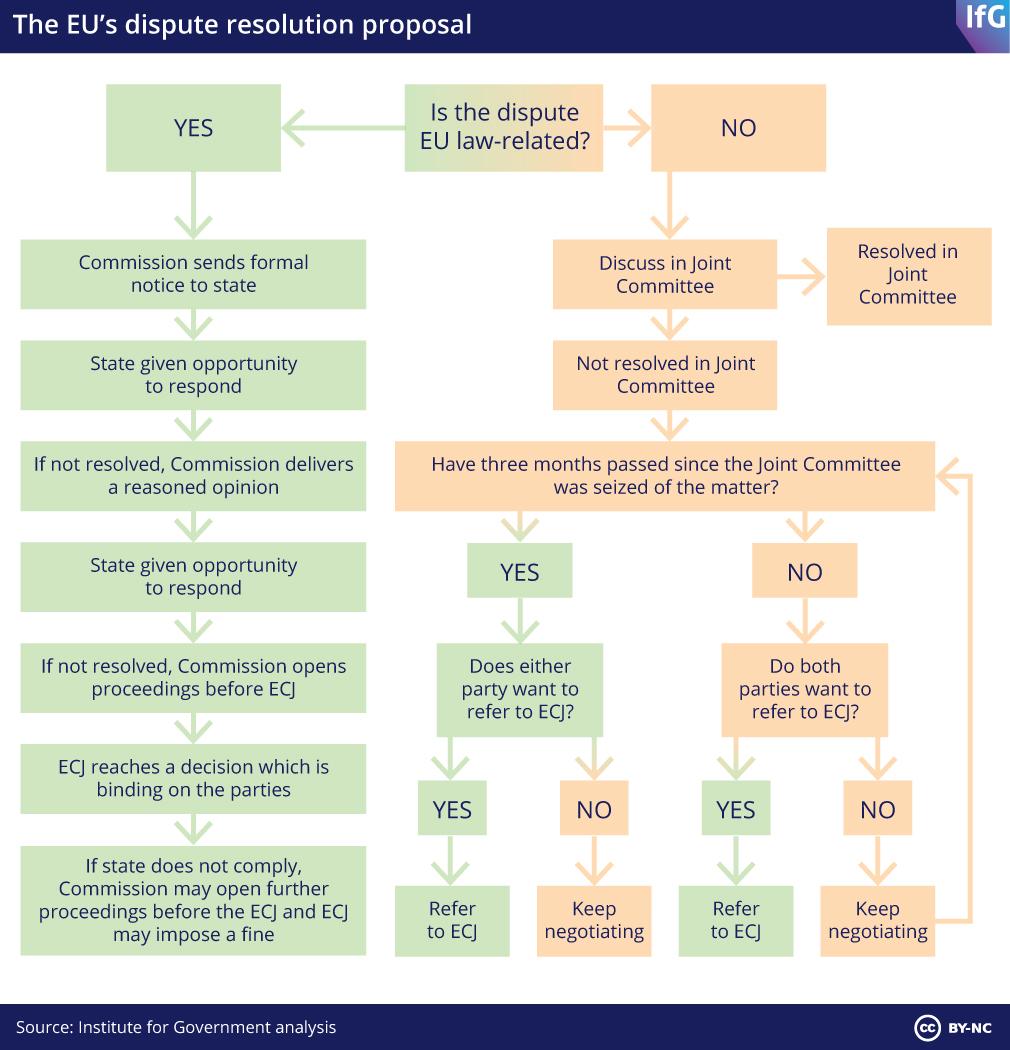A reasonable compromise on the European Court of Justice
The role of the European Court of Justice in settling disputes over the Brexit Withdrawal Agreement was one of the issues unresolved in March
The role of the European Court of Justice in settling disputes over the Brexit Withdrawal Agreement was one of the issues unresolved in March. Raphael Hogarth says the emerging agreement deserves a cautious welcome.
On Monday the Prime Minister announced that 'governance' of the Withdrawal Agreement has been settled. However, she gave no details on the role of the European Court of Justice (ECJ) in settling disputes, the issue on which negotiators had been deadlocked.
Reports suggest that the system under discussion is similar to one used for the EU’s agreement with Ukraine. That would work roughly as follows: disputes over the application or meaning of the deal would be discussed in a joint committee of UK and EU diplomats, then submitted to independent arbitration if they could not agree.
If the outcome of the dispute depended on the correct interpretation of a rule or concept of EU law, then the joint committee or arbitrators would have either the option or the obligation (it is not clear which) to ask the ECJ to interpret it. The ECJ’s ruling would be binding on the arbitrators and the joint committee. The ECJ would not, it appears, have a role on disputes about the Withdrawal Agreement itself which did not touch on EU law.
The UK Government also proposed this system for disputes on the future UK-EU relationship in its white paper following the Chequers meeting, and it is rumoured to be the way the EU and Switzerland may settle their long-running argument about the resolution of disputes.
A Ukraine-style system would represent a move from the EU’s original position
The EU’s original position suggested that the ECJ should be the arbiter of all aspects of the Withdrawal Agreement (see figure below). This would be unusual, even for an EU agreement with a third country. We argued that the UK should not accept that position.

It makes more sense to limit the ECJ’s role to what is legally necessary: the interpretation of EU law and EU law concepts. Beyond that, there is no reason why disputes should not be handled by a body with members appointed by both sides, in line with normal practice for an international agreement.
Cutting out the ECJ entirely would probably have led the court to declare the whole deal illegal
Some people wanted to see the ECJ removed from the governance of the Brexit deal altogether. But as far as the ECJ is concerned, only the ECJ can bind the EU to certain interpretations of EU law and EU law concepts. Many such laws and concepts can be found in the Withdrawal Agreement. Since dispute resolution only works if a single decision binds both sides, that means a role for the ECJ in interpreting the agreement.
The ECJ has the power to strike down any agreement that does not protect its position as the ultimate arbiter of EU law. That is why it rejected the original proposal for a joint court to police the agreement between the EU and the EFTA (European Free Trade Association) countries, which would have given non-EU judges a role in interpreting EU law. EU negotiators therefore had little room for manoeuvre on the role of the court: if they had compromised too far, the compromise would only have been struck down by judges.
That may not be enough reassurance for those who want to remove the UK fully from ECJ jurisdiction
The Prime Minister wants to reassure Brexiteers that the ECJ will not have jurisdiction "in the UK". By this, she probably means that the UK courts will no longer be able, or obliged, to make references to the European Court for rulings, beyond what she has conceded already on citizens’ rights for the next eight years.
She may also mean that EU law will no longer take precedence over UK law. However, Article 4 of the draft Withdrawal Agreement suggests that at least some parts of the deal will have supremacy, or something like it. It also suggests that UK judges will be obliged to pay due regard to the ECJ.
If the Prime Minister wins Parliament’s ‘meaningful vote’ on the Withdrawal Agreement, these obligations will be fleshed out in the EU Withdrawal Agreement Bill, which the Government needs to implement the deal. The Prime Minister may have won an important concession – but that won’t save her from trouble in Parliament.
- Supporting document
- IfG_Brexit_dispute_resolution_WEB.pdf (PDF, 503.25 KB)
- Keywords
- Withdrawal Agreement Trade
- Country (international)
- European Union
- Institution
- Judiciary
- Publisher
- Institute for Government